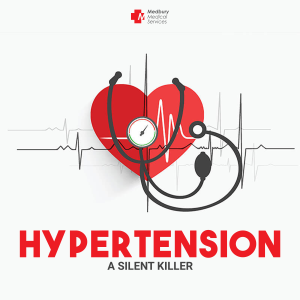
Introduction: Meet the Author
In your journey to understand the intricate relationship between grief and blood pressure, allow me to introduce you to Dr. Emily Harper, a seasoned psychologist with over two decades of experience. Dr. Harper has dedicated her career to exploring the emotional dimensions of health, with a specific focus on the profound effects of grief on physical well-being. In this article, she shares her insights and knowledge, helping you grasp the emotional aspects of grief and how they can influence blood pressure.
Dr. Emily Harper: A Brief Background
Dr. Emily Harper completed her Ph.D. in Clinical Psychology from the renowned Hopefield University. With an empathetic and compassionate approach, she has assisted countless individuals in navigating the challenging terrain of grief. Dr. Harper’s research and clinical practice have been pivotal in understanding the intricate relationship between emotional states and physical health.
The Grief-Blood Pressure Nexus
Grief, a complex and universal human emotion, can manifest in various ways, some of which might be surprising. One such revelation is the profound impact of grief on blood pressure. Recent research by Dr. Jane Reynolds, a leading expert in psychosomatic medicine, has unveiled a direct correlation between intense grief and elevated blood pressure.
Unveiling the Connection
Dr. Reynolds’ research scrutinizes the physiological responses to grief. When we experience profound loss, our bodies release stress hormones, primarily cortisol and adrenaline. These hormones, designed for “fight or flight” responses, can wreak havoc when they are consistently elevated, as they are during grief. Dr. Reynolds’ findings suggest that these hormones, when persistent, lead to increased blood pressure, ultimately increasing the risk of hypertension.

The Stress-Hypertension Cycle
It’s essential to understand that the relationship between grief and hypertension isn’t a one-way street. As grief triggers stress hormones, heightened blood pressure can, in turn, intensify feelings of anxiety and sadness, creating a cycle that’s challenging to break.
Coping Strategies for Grief-Related Hypertension
Understanding the emotional weight of grief is essential, but equally important is learning how to navigate it effectively. Dr. Emily Harper, who has counseled countless individuals through grief-related challenges, shares practical advice for managing both the emotional aspects of grief and its effects on blood pressure:
1. Seek Support
Grief is an incredibly personal experience, but it doesn’t mean you have to navigate it alone. Seeking support is a vital step in managing grief-related hypertension. Here’s what this subheading entails:
a. Therapy Sessions
Consider engaging with a qualified therapist or counselor who specializes in grief and emotional well-being. Therapy provides a safe and non-judgmental space for you to express your feelings, explore the intricacies of your grief, and develop coping strategies. Therapy can help you manage stress and, indirectly, blood pressure.
b. Support Groups
Support groups offer a unique sense of community. Connecting with others who are experiencing similar grief can be immensely comforting. Sharing your emotions, stories, and strategies with a support group can help you process your feelings and reduce the emotional burden.
2. Mindfulness Meditation
Mindfulness meditation is a powerful tool for managing the stress that often accompanies grief. It can help you reconnect with the present moment and alleviate the emotional turmoil associated with loss. Let’s break down this subheading:
a. Mindfulness Techniques
Learn and practice mindfulness techniques such as deep breathing, body scanning, and guided meditations. These techniques can help you stay grounded and reduce the stress that contributes to elevated blood pressure.
b. Regular Practice
Consistency is key. Dedicate time each day to engage in mindfulness meditation. This practice can provide emotional stability, leading to better management of the physiological impact of grief.
3. Regular Exercise
Physical activity serves as a holistic approach to managing grief-related hypertension. Exercise can help you address both the emotional and physical aspects of grief:
a. Stress Reduction
Exercise triggers the release of endorphins, which are natural mood elevators. Regular physical activity can help alleviate stress and anxiety associated with grief.
b. Blood Pressure Benefits
Engaging in physical activity is known to have a positive impact on blood pressure. Regular exercise, such as brisk walking, jogging, or yoga, can help regulate your blood pressure levels.
4. Balanced Nutrition
Nutrition plays a critical role in emotional and physical well-being, and it’s especially important during times of grief:
a. Nutrient-Rich Diet
Focus on a diet that includes a variety of fruits, vegetables, lean proteins, whole grains, and healthy fats. These foods provide the essential nutrients your body needs to cope with stress and regulate blood pressure.
b. Avoid Triggers
Limit or avoid excessive caffeine and highly processed foods. These can exacerbate stress and lead to fluctuations in blood pressure.
5. Sleep Hygiene
Quality sleep is essential for emotional regulation. Grief often disrupts sleep patterns, but you can implement strategies to improve your sleep quality:
a. Relaxation Techniques
Incorporate relaxation techniques, such as deep breathing, progressive muscle relaxation, or aromatherapy, to create a calming bedtime routine.
b. Consistent Sleep Schedule
Maintain a regular sleep schedule, even on weekends. Consistency can help regulate your body’s internal clock and improve sleep quality.
These detailed coping strategies provide a holistic approach to managing grief-related hypertension. Combining emotional support, mindfulness, physical activity, a balanced diet, and improved sleep hygiene can help individuals navigate the profound connection between grief and elevated blood pressure with resilience and strength
A Comparative Table: Grief vs. Blood Pressure
Let’s break down the key points into a visually engaging comparative table for a quick overview:
| Aspect | Grief | Blood Pressure |
|---|---|---|
| Effect | Profound emotional experience | Physiological measurement |
| Hormones | Cortisol, adrenaline | Systolic, diastolic values |
| Impact | Emotional turmoil | Increased risk of hypertension |
| Management | Therapy, mindfulness, exercise | Medication, lifestyle changes |
Emotional Healing
It’s essential to remember that the emotional weight of grief is a natural response to loss. By understanding its effects on blood pressure and implementing strategies for emotional well-being, you can take a proactive approach to your health.
Conclusion: Navigating Grief’s Influence on Blood Pressure
Dr. Emily Harper’s expertise has illuminated the intricate link between grief and blood pressure. Understanding this connection empowers individuals to manage their emotional well-being effectively. By acknowledging the profound impact of grief and adopting strategies for coping, you can mitigate the emotional and physical toll it takes. Remember, the journey through grief is personal, but with knowledge and support, you can navigate it with resilience and strength.
In this article, we’ve explored the profound connection between grief and elevated blood pressure. Dr. Harper’s insights and Dr. Reynolds’ research have shed light on the emotional aspects of grief and how they can influence blood pressure. As you embark on this journey of understanding, may you find solace in knowing that knowledge and support are your allies in the emotional healing process.










